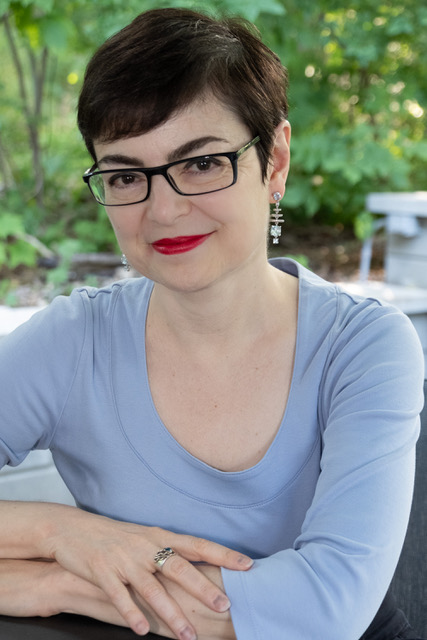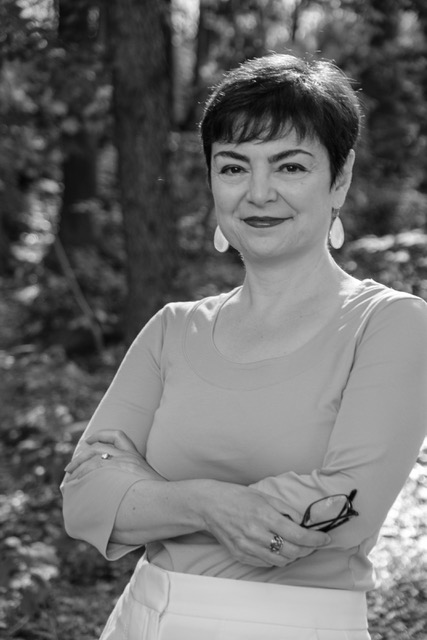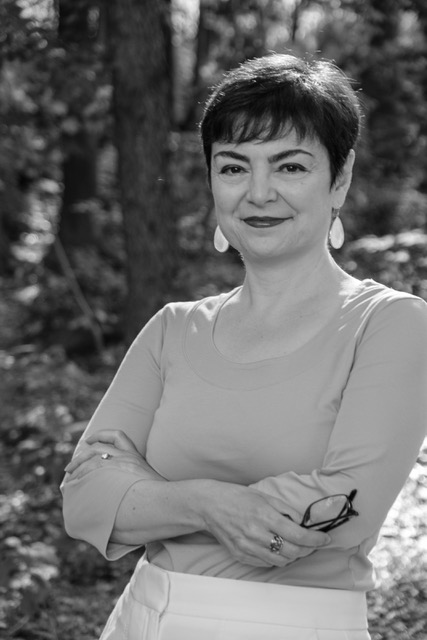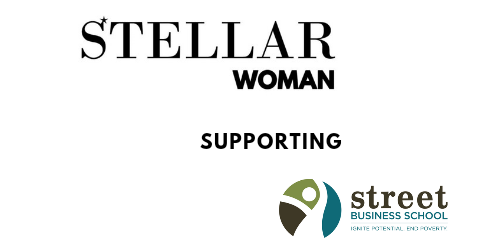You studied maths and statistics, were these subjects related to your childhood dream career? Please explain.
For me, this was a process of elimination. My father was a physician and wanted me to ……….
go into medicine. Since I hated the sight of blood, that wasn’t an option! I thought of studying French literature, which I loved, but my mother dissuaded me: “Oh dear, that is hobby you can do later. You need a degree that will get you a job.”
Onto Plan B, or perhaps C by now, was science which I also loved. Knowing I didn’t have the patience for lab work, I ended up in pure math. And applying the same logic of being able to get a job, pure math led me to statistics.
As a statistician I worked with scientists. I was exposed to new ideas and experiments. My contribution was to make their work more efficient and meaningful. Over time, I became a leader of large organisations and stepped into decision making roles alongside other top executives. In these more senior roles, I continued to learn about science, and to translate the technical statistical considerations into to plain English. Having a common language got us to the real conversation we needed to have.
You moved from Egypt to Canada. What did this change mean to you?
My parents tell me they left Egypt to make sure their baby girl (me) had freedom and opportunity. I was six months-old, but as often happens, it’s the children who create the impetus for major life changes. My parents juggled a fussy baby as they settled in a strange place – completely different culturally and weather-wise. As immigrants, they both worked extremely hard. Dad had to redo some of his medical training and pass several exams. Mom was soon pregnant again, worked full-time and had to learn how to cook…dad often claimed he had eaten at the hospital!
Like many of us, I understood my parents only much later in life. It’s clear to me that without the move to Canada, my sister, my brother and I would have had dramatically different lives in Egypt. I am grateful for their sacrifice.
You suffered from Leukaemia at age 33. Sorry to hear that. This must have been a difficult time. Are you in position to tell our readers how you felt at the point of diagnosis? How were you able to continue to live fully?
It’s something I didn’t talk about at the time except in a small circle of dear friends and with a few people at work. I’m now in a place where I’d like to say more about it, so thank you for the question.
Undeniably, my illness represents the biggest pivot point in my life. It was a gift. I know, it sounds a bit crazy, but the truth is that without something that big, I would have continued on a path which was not making me happy. Successful, yes. But not happy. I took a hard look at my choices and opted for a different path.

There is a second part of your question though. You asked about the moment when I heard the diagnosis. I’ll say my mind went straight to what I knew how to do. Research, facts, information. Colleagues at work connected me with the leading oncologists in the field. I travelled with my mom and my sister to consult experts. I interrogated them like the statistician that I was. It was all about action and making decisions. There was no ’why me?’ or ‘are you sure?’ That wasn’t all of it though. I knew my mind would not suffice here – I had to attend to my mental state. Therapy, yoga, meditation, acupuncture all helped me through the first years when the treatments were horrible and not particularly effective.
Was I able to live fully? Yes, and then some. I met the man I would marry. I continued to work, even garnering recognition from FDA and peer companies for some methodology work on generic drug standards. I was never on my own: my team and colleagues were hugely supportive as were my close friends and family. I had finally let them in.
Then things turned around for you and a new treatment was developed which was great! Please share with our readers how you felt.
I never asked “are you sure?” when I was diagnosed, but I sure did when my oncologist told me I was well on my way to remission with the new drug. I couldn’t believe it! I was settled on dying young, my ‘affairs’ were in order, and I was going to live on my terms, for whatever short time I might have. The new medicine allowed me to live – full stop and without conditions. It was up to me now.
I got married, went on to bigger things at work, and continued to pursue what gave me positive energy and reducing all the rest.
My most trusted doctor turned out to be the one I first spoke with; his office was literally several doors down the block from me in central Philadelphia. He was alongside me the whole way. He is delighted that the young 33-year old he met all those years ago is now facing the usual diseases of aging: menopause, herniated disks and so on. Our check-ups are as much social as medical. Here is a shout-out to him: Thank you for showing me what a good doctor is and how much of a difference that makes.
Tell us about founding your consultancy firm – NMD Group. How did it come about and what’s its mission?
I mentioned getting married late in life, just as I was coming into remission. That wonderful man is 17 years my senior. He retired while I was still in executive career mode. He supported me in my career while I jetted around the world and brought all my expertise to bear on addressing other patients’ illness. At some point, it came time to slow that down, and come back home to my husband.
You can guess I wasn’t one to just stop. I reformulated my goals in retirement to be two-fold. I want to do more for healthcare AND I want to have time for the people and activities I love. That drove me to create my consulting firm, NMD Group. We specialise in big projects where data and analytics can address a health challenge.
One of my first clients asked me to help them bring together multiple parties (with their data!) to see if changes in blood-based assessments of tumour genetics were associated with clinical outcomes. You can read about it here ctMoniTR. The initial phase was very successful, and we’re now expanding into more cancer types and other drug classes.
I am selective about new clients or there would be no time for the rest of it. But I can say that so far, I’ve had the level of impact I was after.
You have led massive initiatives with big organisations like FDA, academics and other experts, please share with our readers what key skills are required to lead such initiatives.
In science it all starts with expertise. Mine is statistics where we study data, and we measure just how clear the message from the data is. Colleagues tell me I am strategic, thoughtful, smart, curious intuitive, innovative, tough but fair. They will almost always mention they’re surprised at how funny I am.
Success at work is inevitably about people. If you can motivate them, bring them together, paint a picture of what great looks like – the work will be all the better for it, and so will they.
Beyond that, gosh, I would only add that for any situation, no matter how complex, I come to clarity on the key issues super quickly. That’s a blessing and it’s a curse. Over time, I learned to slow down and to be sure I was hearing alternative viewpoints.
You’re currently leading initiatives in research to deal with the current situation with COVID-19, tell our readers about this great initiative.
I work with an excellent set of colleagues from all over the world. This is a fascinating project supported by philanthropic groups. Here is a link to the ICODA website. Our biggest concern is to enable scientists worldwide to have access to data that will unlock insights to address the pandemic. If the world’s bright minds are looking at data all available through one central mechanism, just think how much they can achieve!

Now, for this kind of work, there is a delicate aspect. These data represent a human being’s medical care – so strict controls are required to ensure the data is being accessed in a respectful manner by those who are accredited to work with it. We’re already understanding some important issues such the impact of lockdowns on pregnancy, and whether drugs can be reliably assessed without a randomised controlled trial.
If we get this right, this sort of ‘data research lab’ can be leveraged for any health crisis or serious disease. It’s a game changer.
How have you managed to stay focused during the pandemic?
The mission to save lives is an imperative. Luckily, I had a good network and soon I was put to work at FDA [in the Office of the Commissioner to help shape their strategy for real-world data for COVID19] and with the Bill and Melinda Gates Foundation [ICODA]. Being productive and diving in with other experts, all focussed on improving our knowledge so we could address the pandemic was an incredible focal element for me.
My husband and I made a few decisions early on. We decided we could control our nutrition, our exercise programme and how to support the rest of the family.
What in your experience, is the key lesson we should learn from this period?
Honestly, there is so much to learn! We were handed a mirror and what we saw was not good. One shining exception was the rapid development of vaccines, though distribution has been less of a success.
I’ll speak more from the societal viewpoint.
“Be prepared” – Pandemic preparedness costs a lot less than the economic impact of the pandemic, not to mention the human toll with 5 million lives lost and the many still living with long-term consequences of the diseases.
“Stop divisive rhetoric” – Work to bridge our scientific institutions, public communication and government decision making processes. [I wrote about this in a Linked In Posting.]
“Thoughtful Individual Power” – Each one of us can educate ourselves. We can listen before we speak. We can hold lawmakers and other leaders accountable. We can find our own voice to say what’s important to us and our families.
With everything that has been going on in your life, share with our readers how you’re able to show up as your best self every single day?
Can I be the best every moment of every single day? That’s a very high bar. But I do try, in aggregate for the more the important things in life.
I have two secret weapons. First, I reflect on how I am doing and feeling. Sometimes through writing, other times in discussion with those close to me. My second weapon is to take active decisions for myself. There are always options, this realisation is empowering.
On top of what you have shared above you have a new book coming out – Sisters Pierced Together. Congratulations! What inspired you to write this book?
I decided to take a year off to write. With my husband’s support, I settled in to see if I could do it. Sisters Pieced Together was written during this period. The voice of the main character was so clear in my mind. She had something important to say and I was a vessel for her story. It was written in one continuous shot; it was one of the most satisfying experiences of my life. You can read more about it at my author website www.NevineZariffa.com [NZ1]
Have you always wanted to be an author? When did you realise the need to impact the world through writing?
I appreciated literature from a young age, at the time it was the classics of French literature, the Russian authors and some Japanese authors. The stories made me think AND feel. That is what I think is most powerful when we read books.
Did you have any fears before embarking on this journey? Can you remember and share the thoughts you had then?
I remember being very grateful I could give up work and give writing a go. I had no fear, to me it was a journey I was on and wherever it took, it would be a good outcome. The book sat for about 10 years before I could come back to it.
How were you able to move forward?
I completed the first draft of the novel and started to solicit an agent. That proved to be a fruitless exercise. Meanwhile, an exciting new job lured me back into my old world. We did some fantastic work for patients, and I achieved everything I was after in about 7 and half years at AstraZeneca. Retiring from the corporate world and getting back to writing seemed like the right thing. Also, my husband who is older than me had been retired for some time and I do like spending time with him!
Once the consulting practice was up and running, it was back to this book and getting it out there to readers. I’m very fortunate to be able to manage both my consulting projects and my writing.
What’s the most fulfilling thing about being an author?
It’s an interior process. You’re with yourself, your ideas, and the keyboard – a lot. While that can be a magical place, it’s hard work to craft a whole novel. Seeing the story come to life keeps me at it. Mainly that happens as I type dialogue; the characters always surprise me. It’s the most fascinating thing!
The moments of elation when I know I am onto to something rival any other work-related ‘ups’ I’ve had over the years. So that’s one reward.
The other reward is when my readers come back to say the story touched them. But I am not even that picky, if they have enthusiasm for any aspect of my book, I’m just thrilled.

What is the main lesson have you learnt from life generally?
Be present. Don’t judge. Strive to understand. Be generous.
You have certainly achieved a lot, what has been your greatest achievement so far?
That’s a hard one. I’m proud of my career, proud of my marriage, proud of how I show up for those I love, proud of how I live life in general. I think though, the greatest achievement was to look inside myself in my thirties and break down the internal barriers that kept me from being whole.
Tell the Stellar Woman readers how you describe success and fulfilment?
Being a complete human being.
I remember signing up for an integrative class and the teacher asked me what had brought me there. We were in a private setting, so I felt comfortable sharing with her. I described my illness and the likely bleak outcome (I hadn’t yet started my new medicine). I said, “What matters to me is to be a whole person and to live a good life.” She understood, probably better than I did. She taught me to meditate and how slowing down can also paradoxically speed things up.
Does the above description differ from the one you grew up with? Please share.
As immigrants, my parents emphasized education and outward signs of success. For me, these external motivators led to rather empty existence because they had outsized my inner life.
With my illness, my world became more interior which ultimately manifested in a different approach for me altogether. This enabled me to reach up and out in terms of my achievements. I now pay attention to make sure I have balance between the two parts of my life.
What helps you to stand out and be the stellar woman you’re?
My husband has always been a great supporter. He’s a lot more easy-going which is helpful. Our marriage is usually peaceful and nurturing, and when it isn’t, we both get to work on it.
Do you have a life mantra? Please share
“Do your best. Do better next time.” I used this when I was asked for my mantra in my first few weeks at AstraZeneca. I remember one of my colleagues saying “Are you sure? This could be scary to some of the staff.” She made me pause since my goal was to encourage action and then reflection on how to do better, not to scare people! Well, by the time a few years went by, it was a common saying in my organisation and beyond.
And really, who ever gets it completely right? Isn’t it better to be humble and honest that we can improve for the next time?
Any advice for your 15-year-old self?
Don’t worry, there is no blackness in your soul.
What are the attributes of your ideal stellar woman?
Strong, Confident, Driven, Courageous.
What future do you envision for women?
Women can do anything they set their mind to. There is a special magic when groups of women decide to tackle a problem. The power women have in their own lives and further into the community is critical to a better world. I say all this recognising that the other half of the population, men, are also important. We don’t have to choose between the two genders, we need to have both equally expressed – and respectfully so.
Where do we see Nevine Zariffa in the next 5 -10 years?
What a great question. I started to write “I’ve not a blessed clue.” But you’re making me think. So here goes. For work, I hope to continue to tackle big important problems in healthcare, beyond science and data into drug pricing. For writing, I would like to think your readers will see a few more novels from me!
The holidays are coming soon, how do you plan to celebrate?
We’ll be with family, small quiet get togethers. Anything else feels off given the many lives claimed by COVID19.
What did holiday time mean to you as a child?
Family, presents, and food. Lots of food!
Do you still hold that same meaning or has it evolved?
It’s different. I don’t have the patience to plot involved celebrations and negotiate multiple details with each family member. I prefer simple affairs. It’s being with people that counts. That’s where I put my efforts.
Do you think that everyone should plan for a celebration during this time? Why?
I believe in celebrating every big milestone or achievement – the joy of sharing with the people we love is one of the best feelings ever. Bring on the good feelings!
My family and I also want to honour the spirit of those who have been impacted by COVID19, so we’ve completely paused any major gift giving. My husband and I have been contributing to local charities in addition to the wider causes we believe in.
How much planning do you have to put in place?
I try to keep it as simple as possible so we can all enjoy the time together. No sense getting all fothed up in the run-up to an event and then not being able to enjoy it. That said, it’s my goal that each person I care about feel special so I put a lot of thought into what would bring them joy.
What is the MUST HAVE for your holiday celebration?
The only MUST HAVE for me is my husband Ed. We’re not of the same religion, so we’ve established our tête-à-tête tradition for New Year’s Eve. A tux for him (it’s decades old and he’s still smashing in it), a suitable glitzy outfit from the closet for me (must be sustainable). We stay home, cook up a storm and exchange our presents and wishes for the New Year.
Please leave a celebration message for the Stellar Woman magazine readers.
Be especially good to those you care about.
Be generous in general.
Be as big as you can be.
Thank you so much for sharing. Thank you for the excellent questions.
